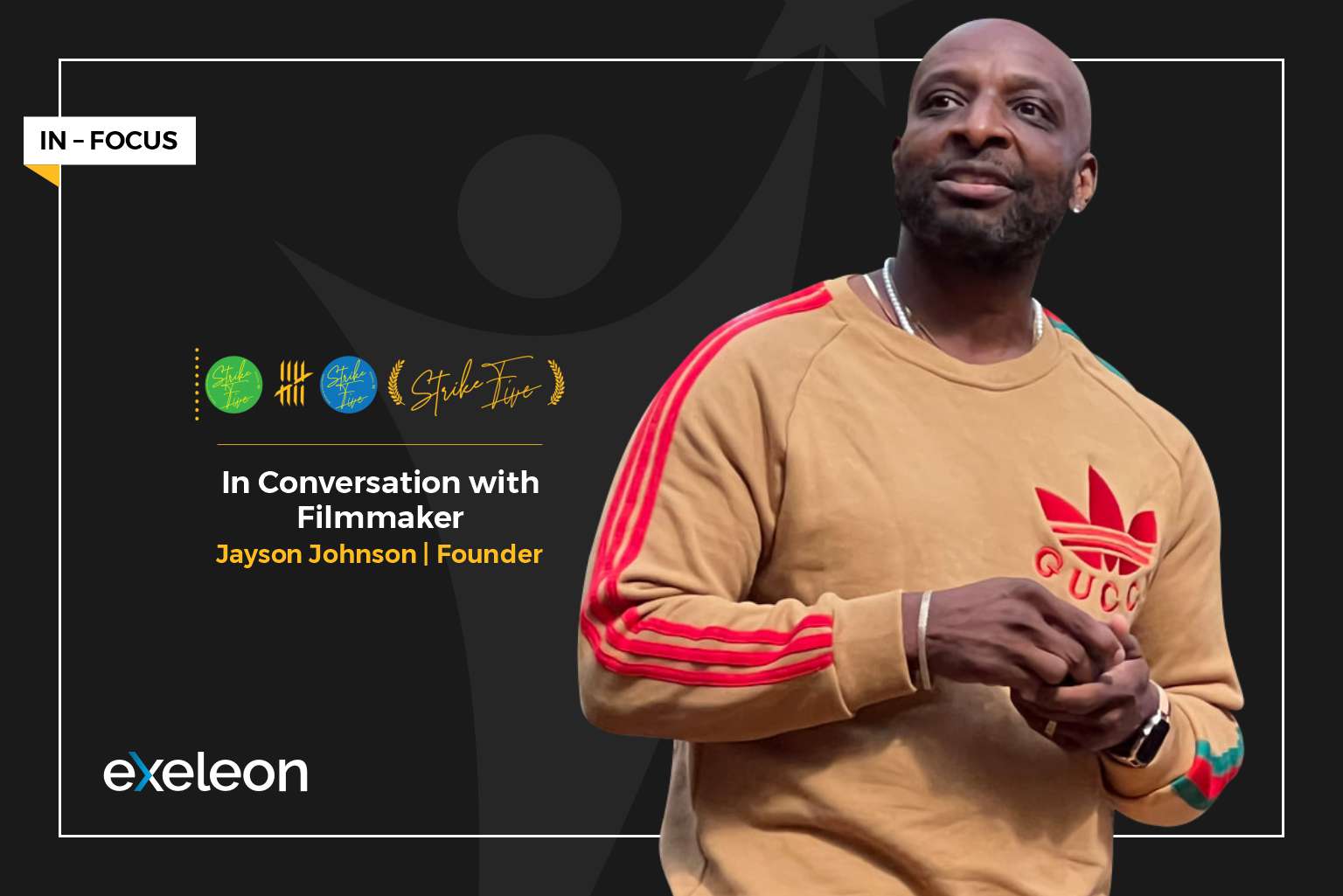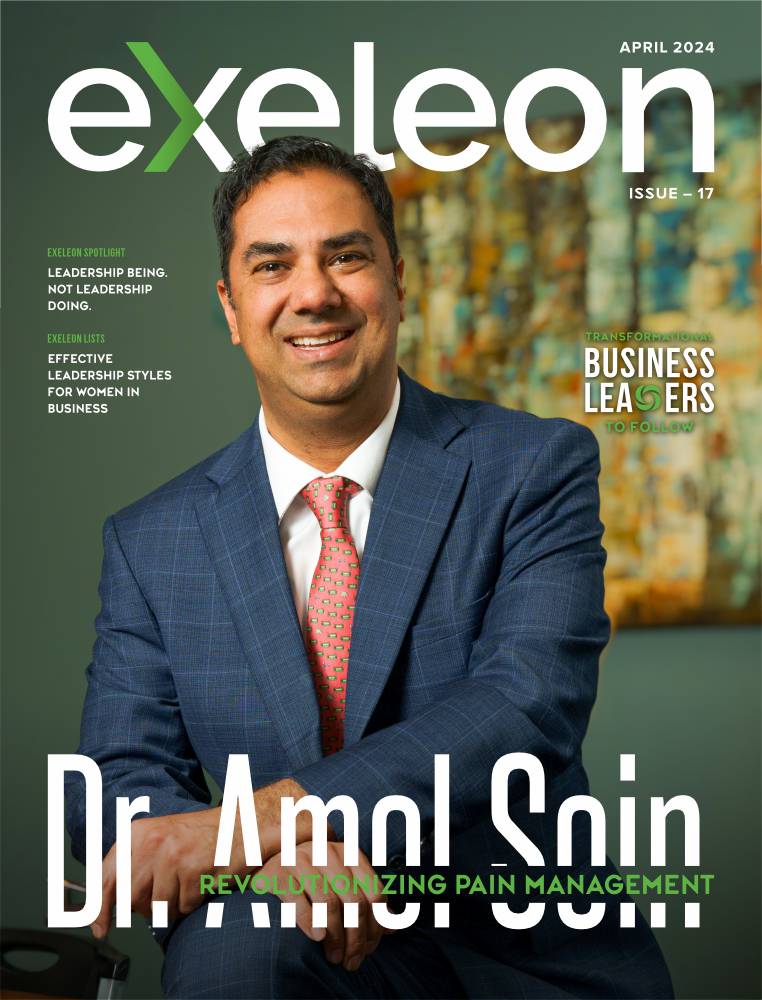
In our Celebration of Black History Month, we are interviewing various entrepreneurs that are making a global change with their leadership ideas and vision.
Click on this link to view the digital magazine of our February special issue of Transformational Black Leaders to Watch in 2023.
In this Interview with Exeleon Magazine, we are having a conversation with Filmmaker Jayson Johnson, who is working on his first feature film – Counterfeit Cabernets.
Please tell us a little bit to introduce yourself and your background.
Growing up as the youngest and the black sheep of my family, I spent my childhood in the West suburbs of Chicagoland living life fast, playing video games, and watching an abundance of movies.
While it was an exciting childhood, I knew as I entered my teens that I wanted something bigger, and so I set my sights on the entertainment industry but didn’t know how to make it a reality.
That all changed when I visited Eastern Illinois University, where I saw a college counselor wearing a red bow-tie. Impulsively, I pounded my fist on the table and declared, “Whatever you’re teaching, I’m in!” It turned out to be the College of Speech Communication, launching my journey as a public speaker, writer, and ultimately a filmmaker.
What prompted your interest and subsequently your foray into filmmaking?
I always knew I wanted to be involved in filmmaking, but I wasn’t sure in what capacity. Acting in plays as a young person had been cool, and writing short stories was enjoyable, but it all came together during a study session with my then-girlfriend.
We were pulling an all-nighter to prepare for a final exam when I took a break and stumbled upon a job posting board. That’s when my life changed forever. I saw an audition for a local film called “Empire of Danger” and became part of it, catching the filmmaking bug for good.
Talk to us about your journey as a filmmaker. What has been the biggest challenges?
I’m a filmmaker at heart! I’ve been through it all in my pursuit of filmmaking. I’ve heard countless “no’s”, slept on the floor, faced homelessness, worked on small and large productions, collaborated with both famous and unknown individuals, scouted illegal locations, ran from the police, and did anything for the love of filmmaking.
When I started searching for film gigs on Craigslist, I had no idea what adventures awaited me. Filmmaking is a challenging field. You need to be resourceful, creative, quick-witted, and have a sense of humor, as there will be times when unexpected things happen, and you just have to laugh and keep going.
The biggest challenge in filmmaking is not finding money, as technology has made it easier than ever to make a film using just your cell phone, but maintaining your passion and hunger so that the dream you’ve nurtured doesn’t fade away.
Looking at your journey, what would you have done differently if you were to start again?
I would’ve packed my bags after high school graduation and said goodbye to Chicago, my parents, and friends. Instead of going to college (where I mostly just partied), or working any random jobs, I would’ve thrown myself into the film industry, soaking up as much knowledge as I could and focusing on my career goals. Despite potentially facing unsatisfying gigs, I believe the learning and experience I would’ve gained at a younger age would’ve been priceless.
As a filmmaker, what according to you are the 3 most crucial things one needs to follow or be particular about?
If you want to succeed as a filmmaker, you need grit, persistence, and a willingness to learn. While creativity, camera knowledge, and writing skills are important, they are secondary to these key traits.
You need grit to withstand the challenges of this industry and to keep getting back up even when you get knocked down.
Persistence is important because you will face a seemingly endless stream of rejections, but you must keep pushing forward until you find success.
Finally, you need the willingness to continuously learn and adapt.
When I started, I wanted to be an actor, but when I couldn’t find acting gigs, I learned how to produce. Then, when directors weren’t interested in my film ideas, I learned how to write, and when they didn’t want to direct my scripts, I learned how to direct. The best filmmakers are those who can adapt and overcome challenges, making themselves more valuable in the process.
Talk to us about your first feature – Counterfeit Cabernets. What can one expect from it?
My first job in California was working for Francis Ford Coppola at his winery in the Napa Valley. I didn’t know anything about wine but for whatever reason they still hired me.
I became a wine steward and poured wine for a season talking to a lot of people about wine. It was at this time I learned to love the romance, mystery, and seduction behind wine. So, when the time came for me to write my first film, I knew I wanted to do something related but different at the same time.
I figured it would be cool to make a wine heist film after hearing about a botched robbery attempt at one of the vineyards. With this project I’m bringing my love of pulp crime novels and wine together to make something I think people will find entertaining, a little weird and hopefully pretty funny.
Finally, what according to you makes one a successful entrepreneur?
A few years after leaving Francis Coppola’s winery, I ran into one of his producers, Anahid Nazarian. She asked what I was up to, and I told her I was a filmmaker entrepreneur.
She then asked, “What have you ‘preneured?” I was taken aback and couldn’t think of anything to say as I had not yet produced anything substantial. This experience taught me that a successful entrepreneur is someone who takes action and starts, even if it’s not a big project. They must be constantly learning, striving, and improving to be the best value they can be.









